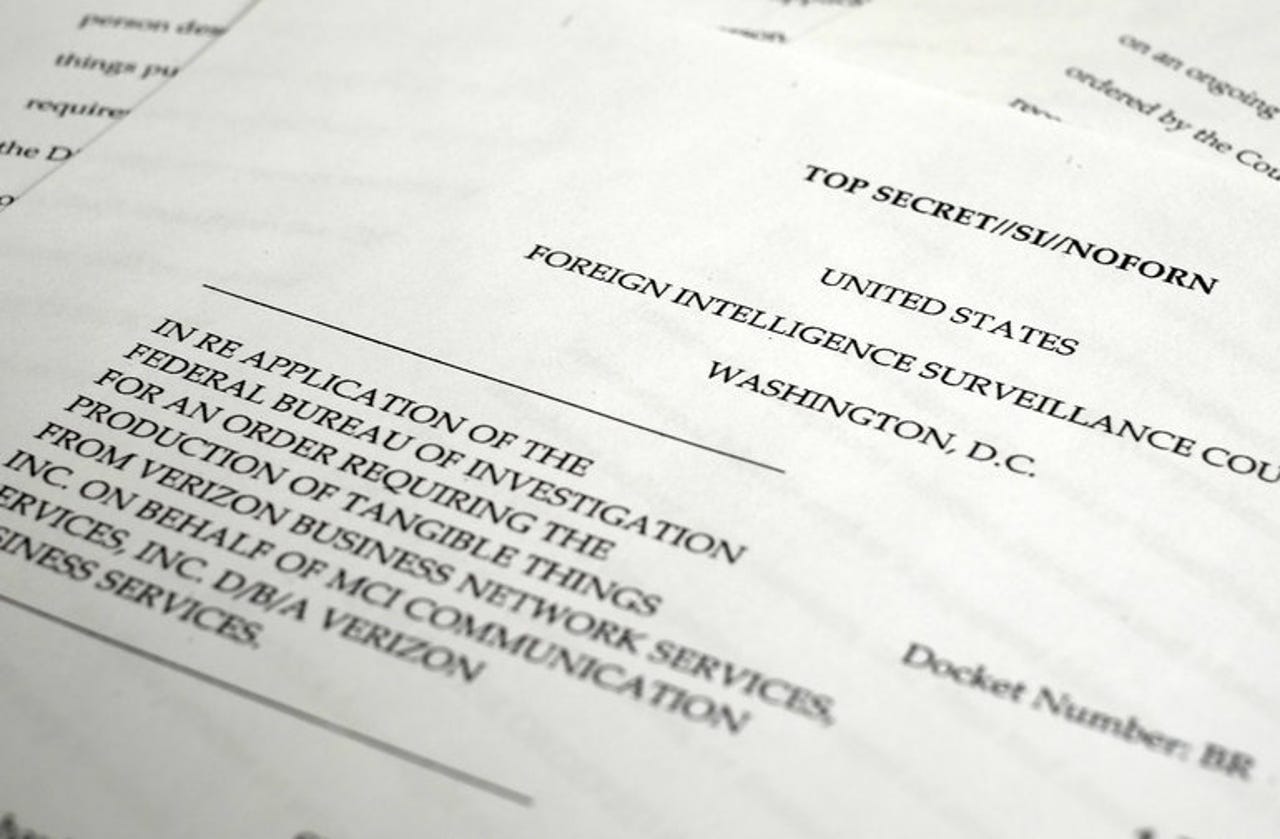Here's how many US surveillance requests were rejected in 2015


(Image: file photo)
A secret court that oversees the US government's surveillance requests accepted every warrant that was submitted last year, according to new figures.
The Washington DC.-based Foreign Intelligence Surveillance Court received 1,457 requests from the National Security Agency and the Federal Bureau of Investigation to intercept phone calls and emails.
In long-standing fashion, the court did not reject a single warrant, entirely or in part.
The FBI also issued 48,642 national security letters, a subpoena-like power that compels a company to turn over data on national security grounds without informing the subject of the letter.
The memo said the majority of these demands sought data on foreigners, but almost one-in-five were requests for data on Americans.
The figures are reported annually by the Justice Dept. to members of Congress, and were released on Monday. Reuters first reported the figures on Friday.
The work of the court is shrouded in secrecy. Founded in 1978, the so-called FISA Court was tasked with processing government requests for surveillance against foreign targets. It was this court that approved a number of controversial programs, such as PRISM and the phone records collection program, which were later leaked by whistleblower Edward Snowden to journalists.
Because the court only hears the government's case, that's led to accusations that there aren't enough checks and balances and that it's a "kangaroo court with a rubber stamp."
Since 1979 through to 2015, the last round of reporting figures, the court has approved 38,365 warrants but only rejected a dozen. That's a rejection rate of 0.031 percent.
But only in recent years has there been a push back against the government's one-sided authority.
Last year, the court appointed five lawyers and attorneys with national security clearance -- including Marc Zwillinger, a lawyer who's represented both Apple and Yahoo at the court -- to act as pushback against the government's requests.
The move was a provisions in the Freedom Act, which passed mid-2015, as an intelligence community reform effort in the wake of the Snowden revelations.